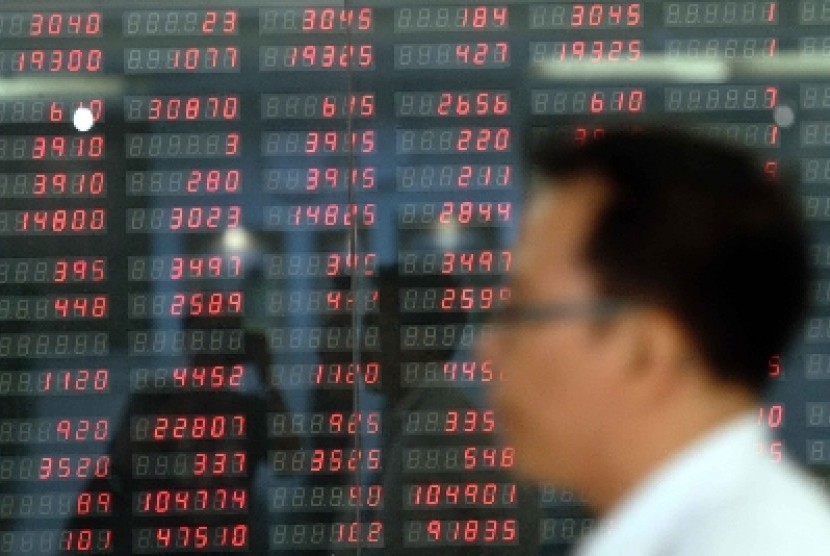REPUBLIKA.CO.ID, JAKARTA -- The market reacted positively to President's account of the progress in the country's economic development in his financial note at a plenary session of the House of Representatives (DPR) here on Tuesday.
The index of the Indonesian Stock Exchange (BEI) closed 51.28 points or 0.96 percent higher at 5,371.84 points with index of 45 most liquid stocks up 1.19 percent to 922.92 points.
Chief researcher of NH Koorindo Securities Indonesia Reza Priyambada said the president's state of the nation address and financial note was a factor giving optimism to the market players in the domestic market with the country's economy.
"The economic target and inflation target were seen by the market players as quite realistic," Reza said.
President Joko Widodo (Jokowi) in a state of the nation address proposed a draft state budget for 2017 with economic growth target at 5.3 percent and inflation at 4 percent. The fact that Indonesia would continue to post growth when many other countries suffered a contraction encouraged investors to buy more shares, he said.
Foreign investors also continued to buy shares. Based on data at BI, there was a foreign net buy of Rp 581.06 billion on Tuesday. HD Capital analyst Yuganur Wijanarko said positive sentiments were brought about by economic growth expectation, improvement in performance of listed companies,fund expected from tax amnesty policy and corporate tax cut.
"Positive domestic sentiments has lifted the BEI index that could climb to the level of 5,400 points," Yuganur said.
Trade on Tuesday recorded 273,400 transactions with 8.12 billion shares worth Rp 7.69 trillion changing hands. Gainers outnumbered decliners by 207 to 119 shares with 104 shares remaining stagnant.
Regional markets such as Hang Seng, Nikkei and Straits Times recorded a decline in index. Meanwhile, the national currency rupiah gained against the U.S. dollar trading at the level of 13,058 per dollar from earlier level of 13,090 per dollar.
Chief researcher of NH Koorindo Securities Indonesia Reza Priyambada said the rupiah gained on relatively strong economic fundamentals of the country, when most countries suffered a slowdown or contraction. "Rupiah appreciation was driven by positive Indonesian economic fundamentals," Reza said.
He said rupiah also responded to US dollar falling value in global market on uncertainty on U.S. central bank decision over raising or not raising its fund rate.


